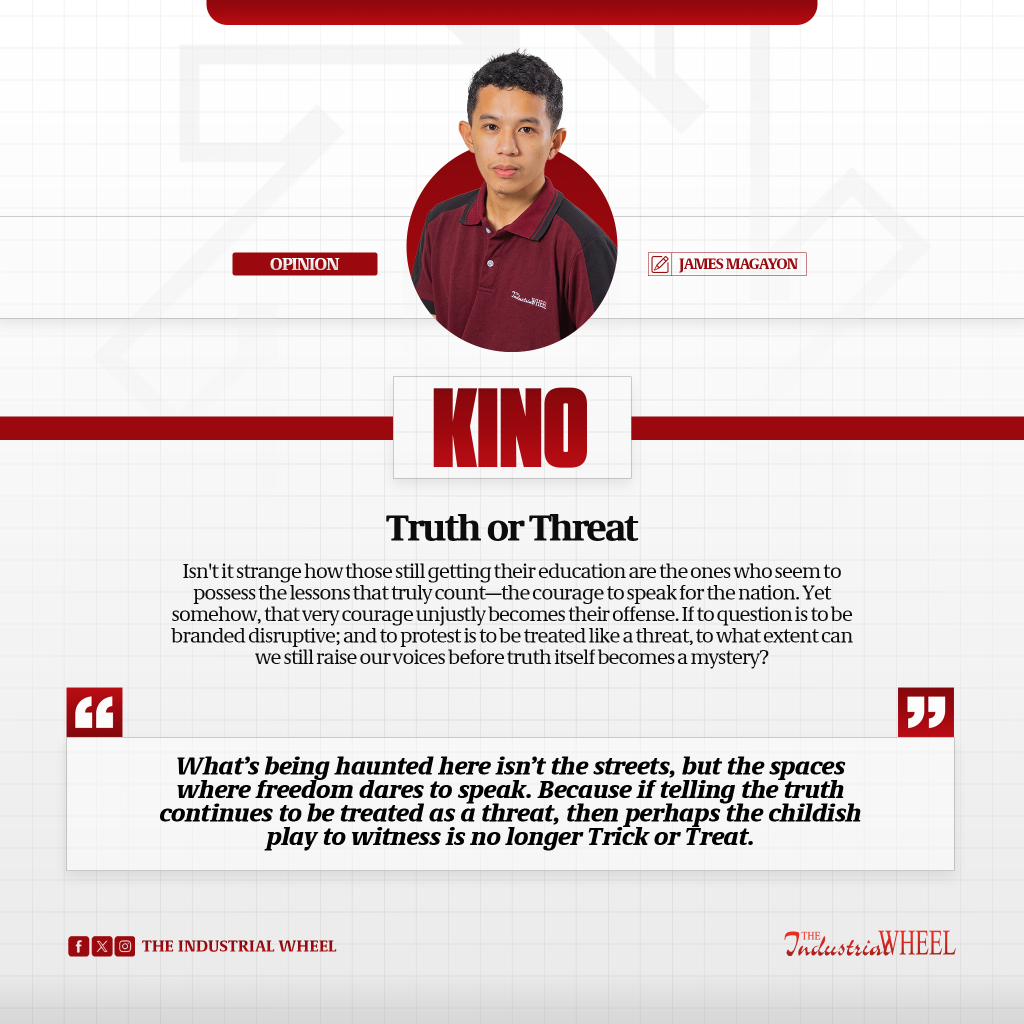
Isn’t it strange how those still getting their education are the ones who seem to possess the lessons that truly count—the courage to speak for the nation. Yet somehow, that very courage unjustly becomes their offense. If to question is to be branded disruptive; and to protest is to be treated like a threat, to what extent can we still raise our voices before truth itself becomes a mystery?
In a country where raising one’s voice is mistaken for noise, the young yet keen people have become the ghosts of a democracy that fears its own truth.
This irony played out when the Philippine National Police (PNP) recently issued subpoenas to several student leaders who led anti-corruption rallies calling for transparency and honesty in governance. Their intention was simple: to demand that public funds be used for the public good. But instead of dialogue, they received documents—as though civic duty were a criminal act.
The subpoenas, served by the PNP-Criminal Investigation and Detection Group (CIDG), were issued, directing the student leaders to appear for investigation at Camp Crame in Quezon City, over alleged violations committed during the massive September 21 anti-corruption protests and rallies that called out anomalies within the government and public works projects.
Moreover, PNP Public Information Chief Brig. Gen. Randulf Tuaño explained that under Republic Act No. 10973, the CIDG has the legal authority to issue subpoenas and may file a case for indirect contempt before a regional trial court if the recipient fails to comply.
Among those student leaders who received the papers wrapped in intimidation are University of the Philippines (UP) Diliman University Student Council Chairperson Joaquin Buenaflor and Polytechnic University of the Philippines (PUP) Central Student Council President Tiffany Brillante.
To call these actions anything less than repression would be dishonest. These are deliberate attempts to criminalize proactive actions and to make young people feel that demanding accountability is an act of defiance.
The timing alone tells the story. The subpoenas came a month after the Commission on Higher Education (CHED) urged schools to protect students from threats for expressing dissent. Yet here they are—the security officers contradicting that call into a practice of prosecution.
If these student leaders hadn’t raised their voices, then who would? Who else dares to strike a match in the darkened room of deception and be the equalizer between honesty and hypocrisy? For all the nation’s talk of hope and progress, it is the youth—unpaid, unarmed, and unafraid, doing the heavy lifting for democracy.
What’s being haunted here isn’t the streets, but the spaces where freedom dares to speak. Because if telling the truth continues to be treated as a threat, then perhaps the childish play to witness is no longer Trick or Treat.
Article by James Magayon
